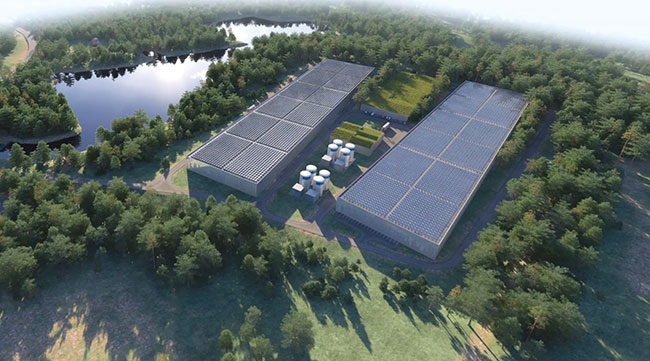
Opinion
Research
Management
Sustainability
The court of public opinion
August 14, 2019 By Mari-Len De Guzman
 A rendering of Nordic Aquafarm's planned RAS facility in Belfast, Maine (Image: Nordic Aquafarms)
A rendering of Nordic Aquafarm's planned RAS facility in Belfast, Maine (Image: Nordic Aquafarms) In journalism, information is our bread and butter. We collect the facts from a number of credible sources, sort through the data and present an unbiased narration of the events. And, if we are doing a good job, our readers are able to gain insights from our reporting of the facts and form their own opinions.
At least, that was true back in the day, the pre-Twitter and pre-Facebook era. In today’s Internet-engulfed society, it is much harder for folks to separate fact from fiction, and easier for unscrupulous entities to dupe people into consuming false and malicious content. Legitimate industries, therefore, must be extra vigilant and more involved in propagating truths and promoting the evidence, especially where public interest is concerned.
The growing number of firms investing in RAS for large-scale production means fish farms are being located in close proximity to markets. Being closer to market also means operating near communities and interacting with residents, whose buy-in is important for the success of the operation.
The state of Maine in the U.S. is a test bed for such dynamics. Over the last couple of years, at least four companies – Nordic Aquafarms, Whole Oceans, Aquabanq and Kingfish Zeeland – have announced plans to set up a land-based aquaculture farm in Maine. First mover Nordic Aquafarms, in particular, has been engaged in a battle with opponents of the project to be built in Belfast. The company is going through the steps to acquire the necessary permits to allow it to begin construction, and its efforts have been met by opposition from a local group. So far, it seems the Atlantic salmon producer is gaining tiny victories along the way, and will ultimately be able to build its planned 33,000-metric-ton production facility.
Nordic Aquafarms will not be the last company to face opposition from various lobby groups. And organizations planning to go the RAS route must come prepared to argue their case not just in the judicial courts, but also in the court of public opinion. Unfortunately, misinformations and misrepresentations have become part of the opposition game and the vehicle for spreading these is just a mouse click away.
Any company doing the unconventional, no matter how noble the intentions are, must have the extraordinary ability to effectively engage the community where they will operate and win the trust of the local residents.
The aquaculture industry is just beginning to wrap its head around RAS and the whole idea of raising fish on land. The business case for this has been building for years and industry acceptance and adaption are increasing. It’s time to expand the fan base and engage the general public, the consumers of these land-grown seafood to be educated on the benefits – and risks – associated with land-based seafood production.
An educated market can have a positive impact on the business bottom line. Drown out misinformation from the loud minority and start telling the RAS story with some real evidence and in a way that would resonate with the consumer.
Print this page